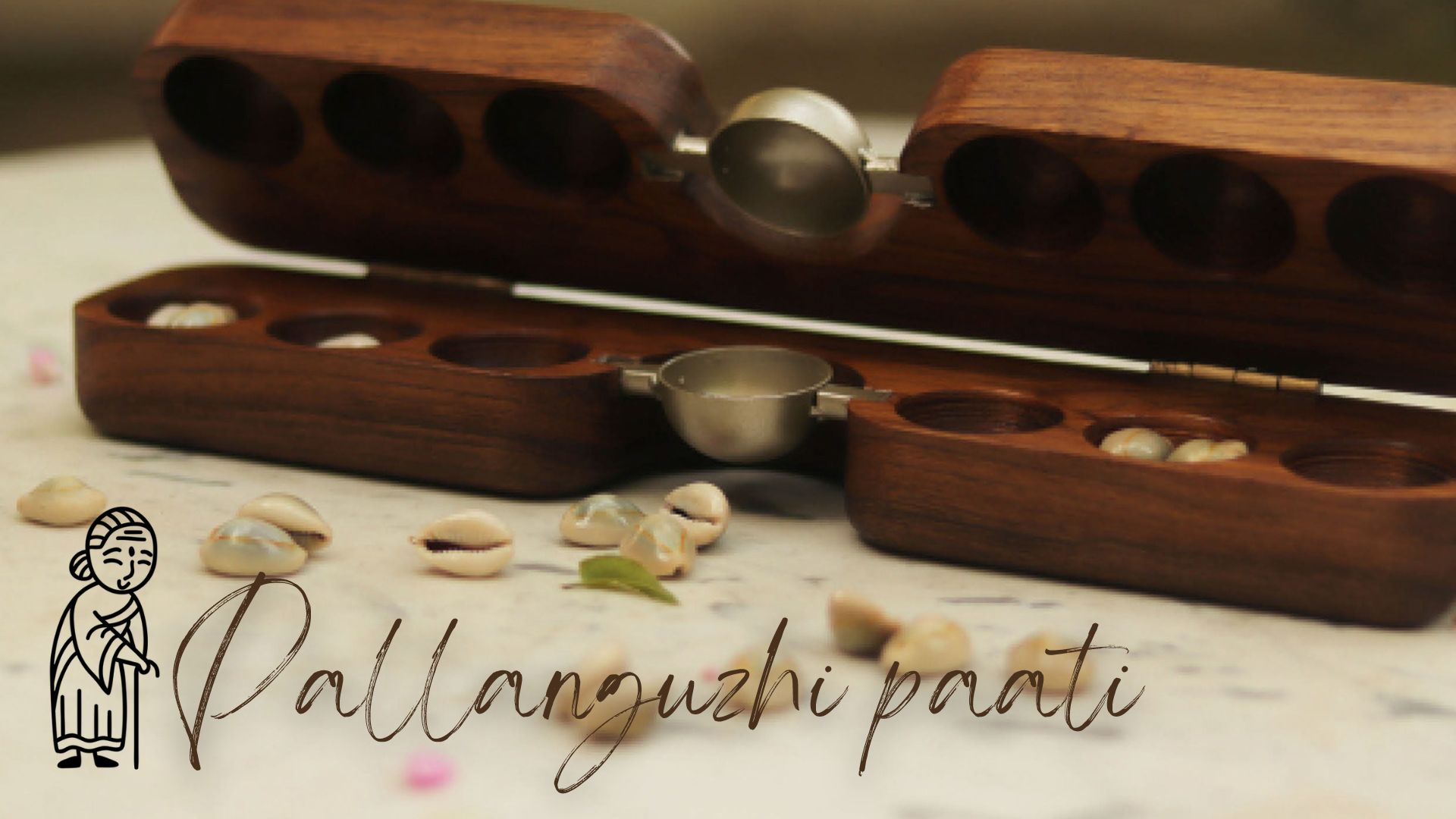
My grandmother Ramathaal was a fair complexioned stout woman who loved potato bondas more than sarees and jewelleries. A woman with traditional tattoos and a kaavi(saffron) saree is how I remember her. The stories told by her made my vacations every year in my childhood. She has told me stories of how she met my grandfather in the mullai poo thottam (jasmine garden), which used to be my favorite. The story about the plague, which she told me during the covid pandemic, is the last I heard from her before her demise.
One of the sweetest and dearest legacy that she has left behind is the wood made Pallanguzhi board which is still there in the pooja room of my uncle. She had a box full of puliyankottai (tamarind seeds) which she fills the pits or sockets in the pallanguzhi board to begin the game. She would always keep the board next to her pillow in her bed, as it was very dearest to her. Pallanguzhi has been an entertainment for women in India for centuries.
There is extremely little free time for entertainment for women in India, particularly those who come from lower socioeconomic classes. To provide for the family, they must work in a factory or field, and when they get home from work, they must take care of their family's needs at home and with their kids. Similar to this, women in middle-class families must manage domestic duties and make some money as well.
Additionally, women do not have a lot of free time to play games. However, some women in Tamilnadu find time for leisure activities in between their routine domestic duties. Similar to wealthy and sophisticated women, they could not be able to attend. They might not have the same access to recreation clubs as affluent and sophisticated ladies, but they can still play certain inexpensive indoor activities like chess and tennis.
They frequently play Tayakattam, Adupuliyattam, and Pallanguzhi, three board games. Pallanguzhi is unique in that, unlike the other two games, it was originally and continues to be mostly played by women. This has not yet been assigned a cause. Various types of boards have been used to play the same.
Horizontal Pallanguzhi
Pallanguzhi, often spelled Pannankuzhi, is a Tamil term that means "a game with numerous pits" (pal meaning many and kuzhi meaning pit). A wooden board with pits is needed for the game, typically with seven pits on each side. It is mostly a foldable, rectangular board that occasionally has a fish shape. Two lengthier pits are constructed in the middle space between the two rows of seven pits so that the coins of the players on each side can be kept there.
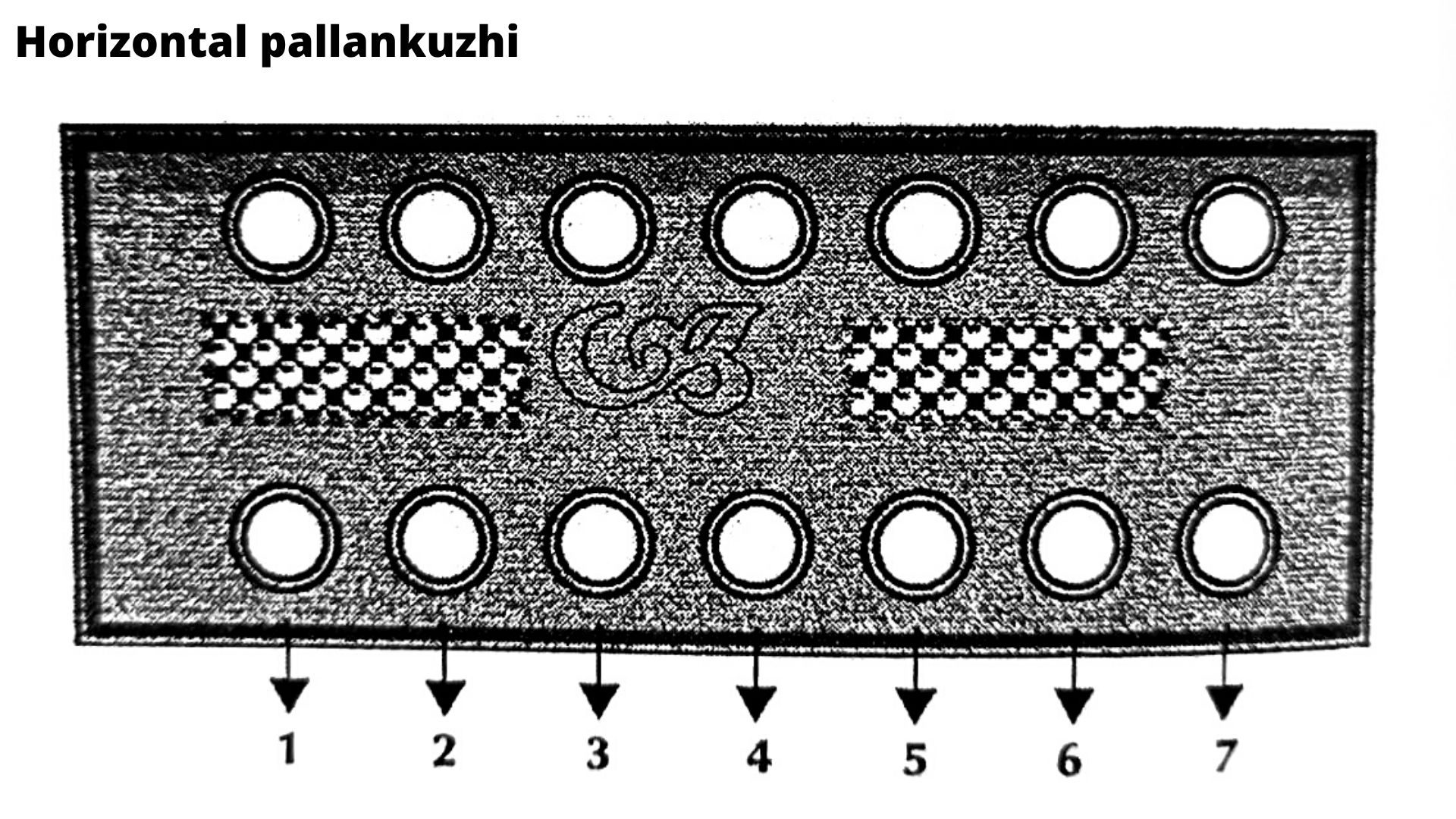
L shaped Pallanguzhi
The game is played the same manner regardless of how the pits are arranged on various boards. Six pits are retained in two rows for each pair of players, and a seventh pit will be placed on either side of the game board, as specified in L shaped board. Each player would have seven pits, plus a longer pit to hold the extra coins, depending on how the board is configured.
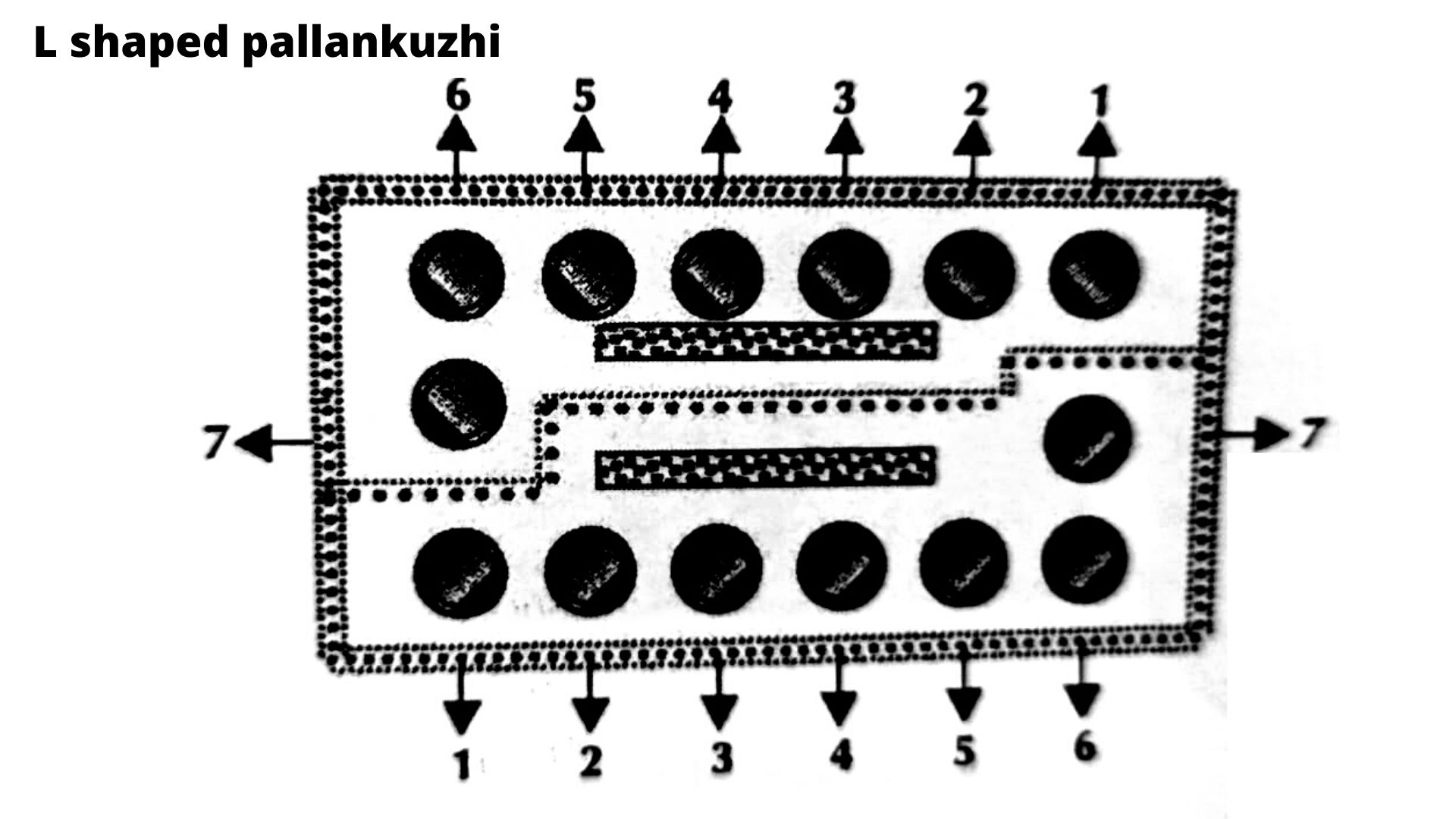
Triangular Pallanguzhi
The Pallanguzhi board in the Kanyakumari region is triangular in shape so that three players can play with five pits apiece. The board is exquisitely constructed, and there are five pits on each of the triangle's three sides for the three players. This kind of board is uncommon.
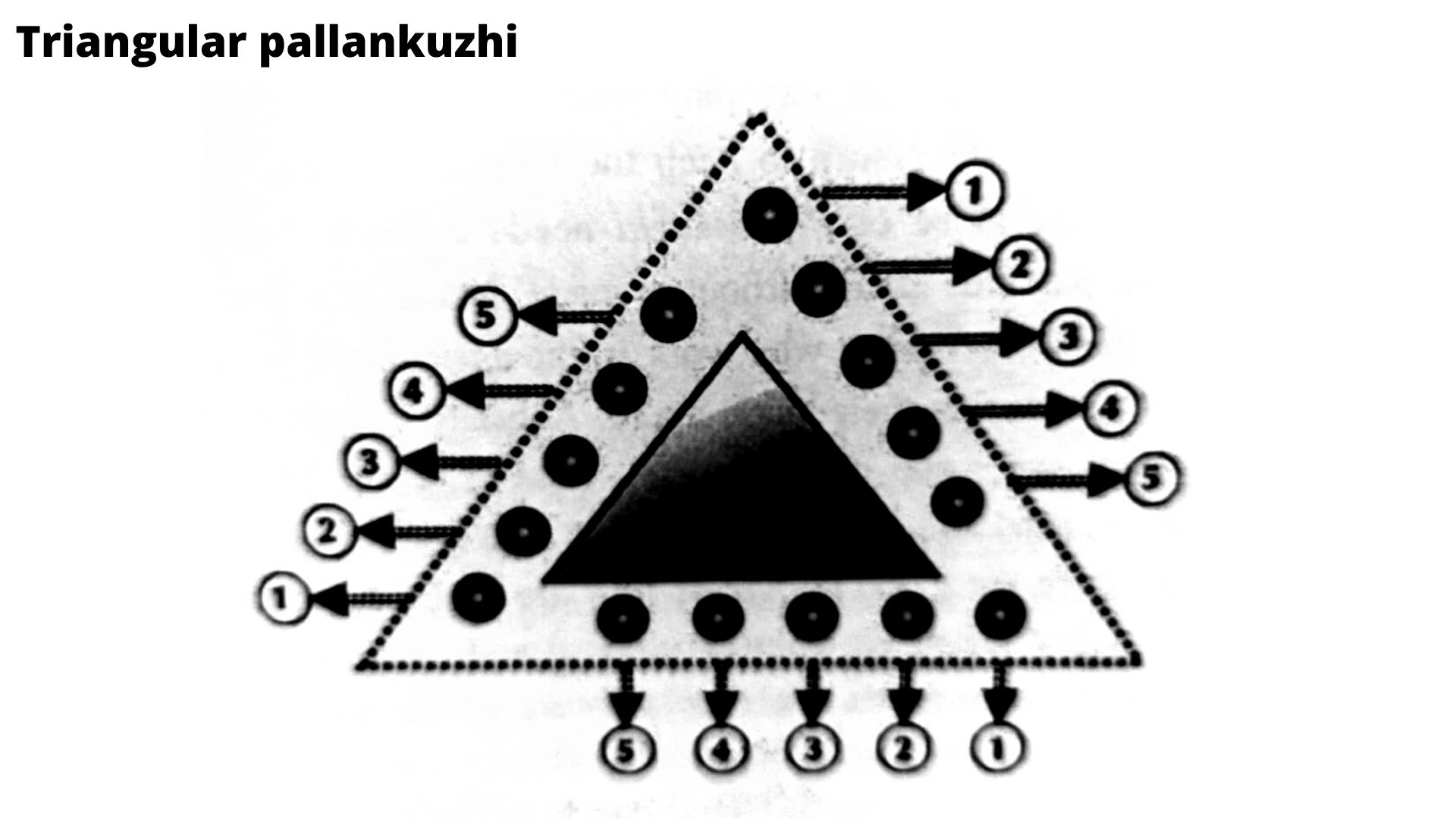
The traditional games are evolving and finding their new shape in the form of digital games in mobile phones and computers. There are various android games of pallanguzhi available in the play store and app store, that the modern children love to play. However, the emotions attached to it are diminishing in the process. It is believed that the blessings of the old exist in the things that they were attached to. The physical existence of such things have been a legacy in the past and such has to be preserved.
Source : Folk Games of Tamilnadu by V. Balambal.
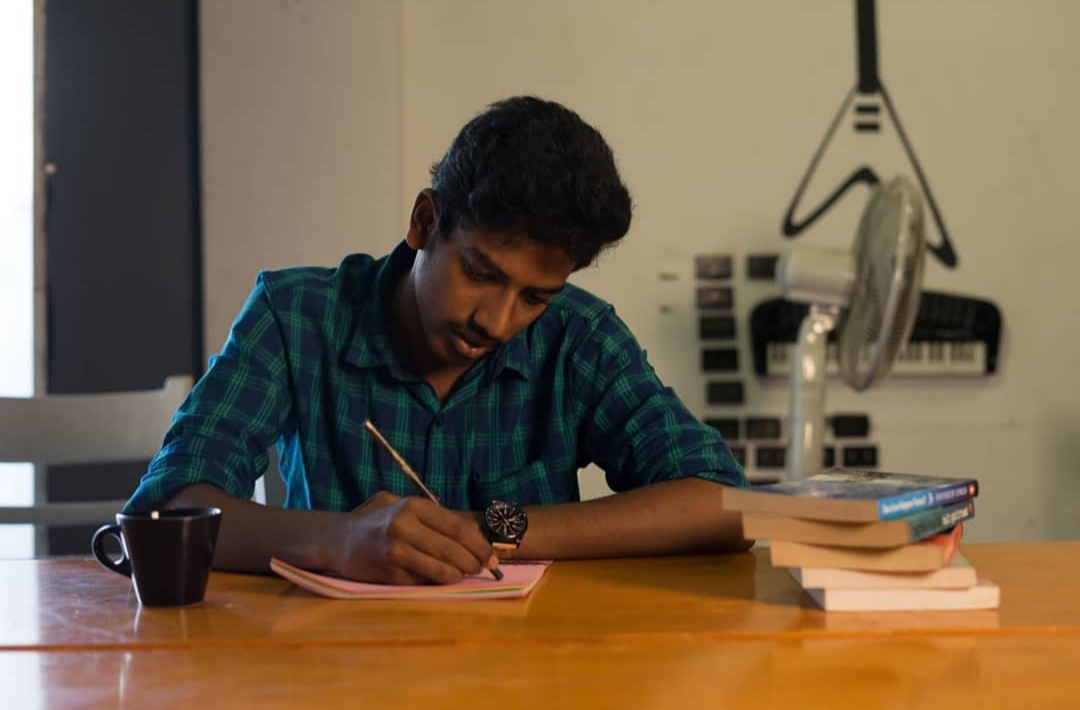 Vigneshvaran is the Special Correspondent of the company. He is a graduate of English Literature with keen interest in Indian culture and tradition. He has authored the book Halahala - Corona Outbreak 2020. He writes poems in both English and Tamil. He is also an excellent orator.
Vigneshvaran is the Special Correspondent of the company. He is a graduate of English Literature with keen interest in Indian culture and tradition. He has authored the book Halahala - Corona Outbreak 2020. He writes poems in both English and Tamil. He is also an excellent orator.
NEXT ARTICLE

Indian parents today are increasingly concerned about their children's limited exposure to the country's rich culture, heritage, and history. Recogniz...
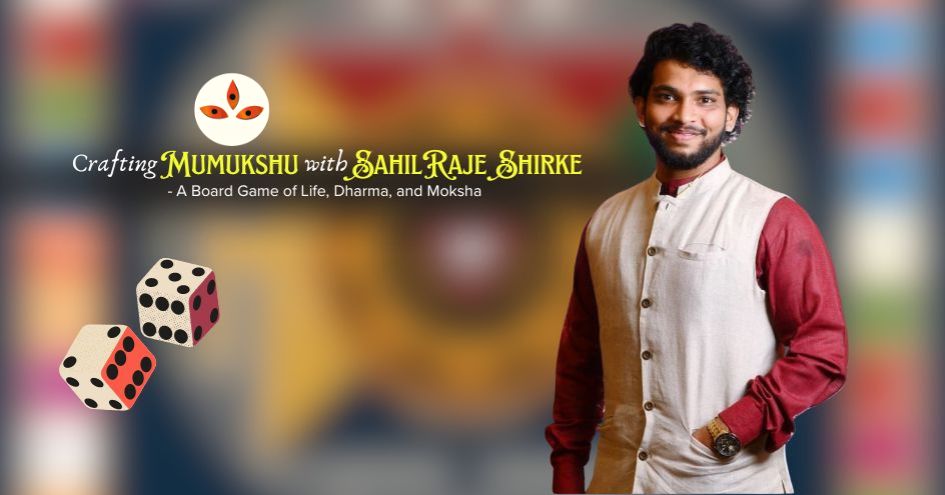
2nd May, 2025In a world increasingly dominated by fleeting digital entertainment, SahilRaje Shirke, an entrepreneur with a deep-rooted passion for Ind...